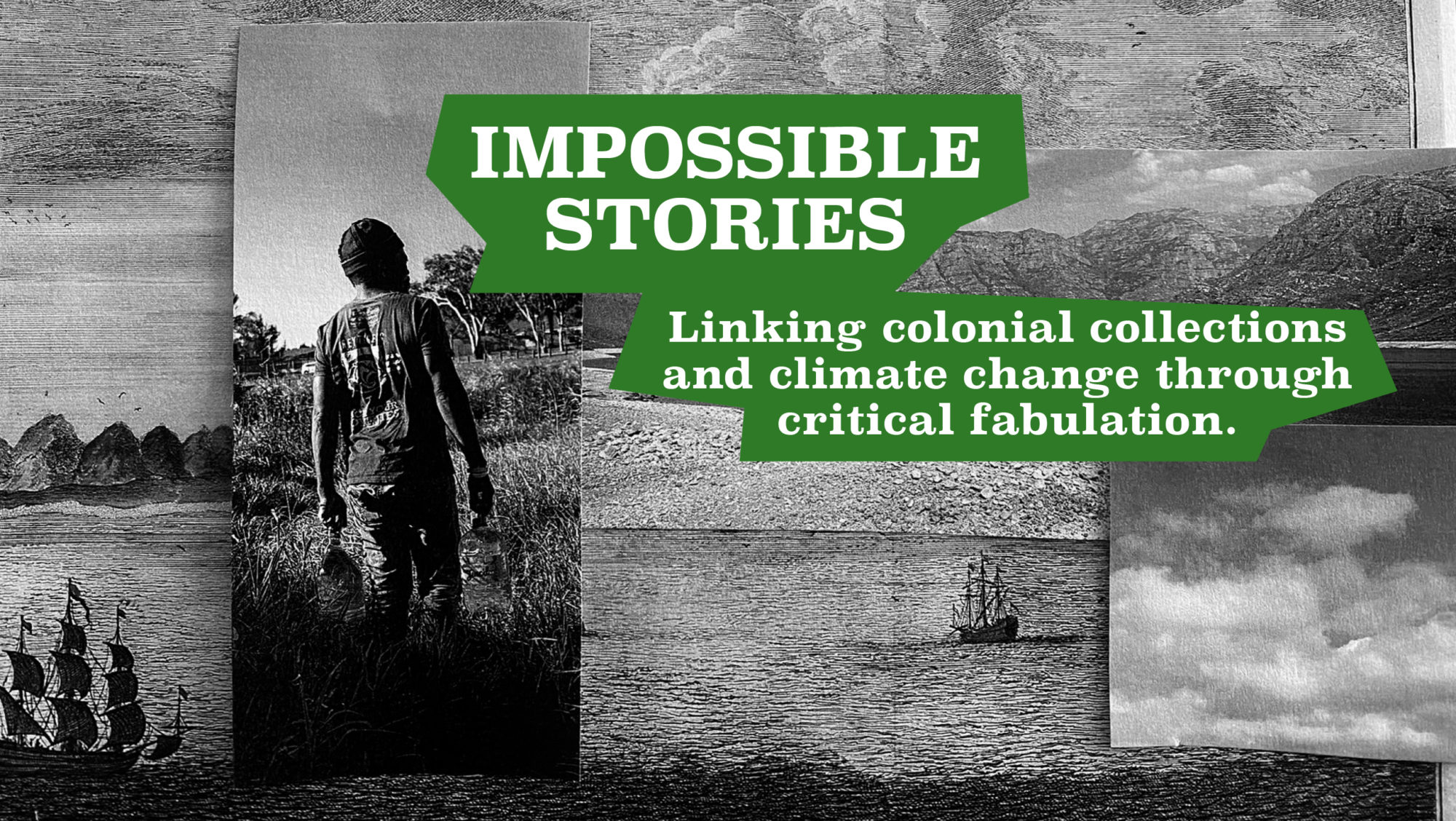The hybrid symposium ‘Impossible Stories: Linking Colonial Collections and Climate Change Through Critical Fabulation’ is centrally about the re-imagination of colonial collections through the lens of the Anthropocene. The focus will be on, amongst others, items from UM’s Jesuits Collection, natural history collections and the contemporary sustainability and climate debate. During a plenary program participants are invited to respond to short videos.
This current age during which humankind has become a geological force, is strongly linked to the imperial conquest of parts of the global south. Researchers, curators as well as artists and designers, and also students, meet about how to tell stories about these colonial encounters in relation to the contemporary climate change urgency. How do we mobilise the colonial archive to construct and to imagine the voices that have been silenced? How do we tell stories that remain hidden or disavowed?
Join the seminar on Friday 20 May from 11.00 – 14.00 at Het Nieuwe Instituut in Rotterdam (registration) or join online.
Colonial travel writers
Dutch academic libraries and archives hold large collections of books and reports that represent the commentaries and writings of colonial travelers. These explorers documented their observations, encounters, and ideas about the natural and cultural worlds that they encountered. Their narratives can be understood in conjunction with extensive collections of specimens that are currently considered our colonial heritage and are held by natural history and ethnographic museums. Indeed, these writings cover a multitude of subjects from natural history, religion, geography, economy, natural science to ethnography, and anthropology.
More recently, in the context of debates about the global environmental crisis, various scholars have pointed to the linkages between colonial domination and the origins of for example the climate crisis. (Hamilton, Bonneuil, Gemene 2015; Swanson 2016; Ghosh 2017). In fact, the 2019 recipient of a Maastricht University honorary doctorate Dr. Amitav Ghosh argues that the Anthropocene, the current age during which humankind became a geological force, is strongly linked to the imperial conquest of parts of the global south. Ghosh encourages the further exploration of the intimate relations occasioned by imperial conquests and the exploitation of beings, species and territories in Africa, Asia or Latin America. (Ghosh, 2017). It is against this backdrop the online exhibition Day Zero/Ground Zero came to live and this seminar on colonial conquest, travel writing and its links with the Anthropocene is organised.
Travel writings in the Jesuits Collection
Maastricht Library’s Jesuits Collection is an exemplary collection with such travel writings. Impressively, the Jesuits Collection consists of approximately 250.000 volumes and comprises many lavishly illustrated travel books, most of which date from the seventeenth and eighteenth centuries. Next to, obviously, addressing Catholic missionary zeal, the books also deal extensively with trade missions and scientific expeditions. Dr. Annemieke Klijn (FASoS) and prof. dr. L. Wesseling (FASoS) have worked with this collection as part of the MaRBLe educational project ‘On Expedition – Travels into the Unknown’ since 2013. The current initiative with regard to travel writing lies in the continuation of this engagement.
Visit the webpage to learn more about the Special Collections in general and how to use it for research-based learning or research.
The seminar is an initiative of Maastricht University, KABK Den Haag and the Gerrit Rietveld Academie.


0 Comments